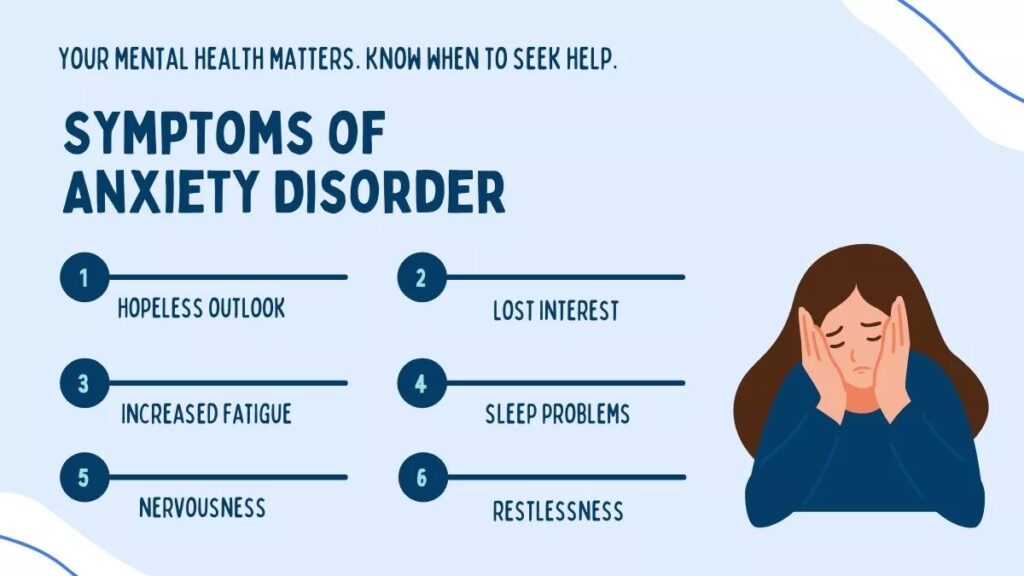How to Overcome Social Anxiety: A Step-by-Step Guide

Understanding Social Anxiety: What It Is and How It Affects You

Social anxiety is a common mental health condition that affects individuals on a global scale. It is characterized by persistent fear and apprehension in social situations, often leading to avoidance or extreme discomfort. When faced with social interactions, individuals with social anxiety may experience intense self-consciousness, excessive worry about being judged or embarrassed, and a strong desire to escape or avoid the situation altogether.
The impact of social anxiety can be significant, as it affects various aspects of an individual’s life. Socially anxious individuals may find it challenging to form and maintain meaningful relationships, engage in social activities, or even perform routine tasks in public settings. The constant fear of judgment and negative evaluation can lead to feelings of loneliness, isolation, and low self-esteem. Additionally, social anxiety can have a detrimental effect on one’s professional life, hindering career advancement opportunities and causing distress in the workplace.
The first step towards managing social anxiety is to gain a thorough understanding of how it manifests and affects individuals. By recognizing the signs and symptoms, identifying underlying causes, and exploring effective coping strategies, individuals can take control of their social anxiety and experience a more fulfilling and enjoyable life.
Recognizing the Signs and Symptoms of Social Anxiety

Recognizing the signs and symptoms of social anxiety is an essential first step towards understanding and managing this common mental health condition. People with social anxiety often experience intense fear and discomfort in social situations, which can significantly impact their daily lives and overall well-being. While everyone feels nervous or self-conscious at times, social anxiety goes beyond normal shyness and can cause severe distress.
One of the primary symptoms of social anxiety is an overwhelming fear of judgment or embarrassment in social interactions. Individuals with social anxiety may constantly worry about saying or doing something embarrassing, leading to avoidance of social events, public speaking, or even everyday activities like ordering food at a restaurant. Physical symptoms often accompany these feelings, including rapid heartbeat, sweating, trembling, and difficulty speaking or catching one’s breath. These symptoms can be distressing and can make individuals feel as though they have no control over their anxiety.
Identifying the Root Causes of Your Social Anxiety

Identifying the root causes of social anxiety is a crucial step toward understanding and overcoming this challenging condition. While social anxiety can manifest differently for each individual, there are common underlying factors that contribute to its development. It is important to note that social anxiety is not caused by a single factor, but rather a combination of genetic, environmental, and psychological elements.
Genetic factors play a significant role in predisposing some individuals to social anxiety. Studies have shown that there is a hereditary component to the condition, with a higher likelihood of developing social anxiety if a family member also struggles with it. Researchers believe that certain genes may influence brain chemistry and the regulation of fear responses, making individuals more susceptible to anxious thoughts and behaviors in social situations.
Environmental factors can also shape the development of social anxiety. Past traumatic experiences, such as bullying or humiliation, can leave lasting emotional scars that contribute to social anxiety symptoms. Additionally, growing up in an environment with overprotective or highly critical parents can increase the likelihood of developing social anxiety later in life. Cultural and societal influences, such as societal pressure to fit in or constant exposure to social media, can also contribute to feelings of inadequacy and social anxiety.
Identifying and understanding these root causes is an essential step toward addressing social anxiety. It allows individuals to gain insight into the factors that have contributed to their condition and provides a foundation for developing effective strategies for managing and overcoming social anxiety. By acknowledging and addressing these root causes, individuals can take a proactive approach to their mental health and begin their journey toward a more confident and fulfilling social life.
Overcoming Negative Thoughts and Self-Doubt
Negative thoughts and self-doubt can be powerful barriers that hold us back in life, particularly when it comes to social interactions. These internalized beliefs and uncertainties can cause intense anxiety and prevent us from fully engaging with others and embracing new experiences. However, with dedication and self-reflection, it is possible to overcome these obstacles and cultivate a healthier, more positive mindset.
One effective technique for challenging negative thoughts is called cognitive restructuring. This process involves identifying and examining the automatic negative thoughts that arise in social situations and replacing them with more rational and balanced alternatives. By questioning the evidence and validity of our negative beliefs, we can begin to reframe our thinking and develop a more realistic and constructive perspective.
Self-compassion is another vital tool in overcoming negative thoughts and self-doubt. It involves treating ourselves with the same kindness and understanding that we would offer to a friend facing similar challenges. By practicing self-compassion, we can counteract our harsh inner critic, recognize that everyone makes mistakes, and embrace our imperfections as part of the human experience. Through cultivating self-compassion, we can build resilience and develop a more positive and nurturing relationship with ourselves.
In the next section, we will explore the importance of building a support system and finding a therapist or support group that can help guide us on our journey towards overcoming social anxiety.
Building a Support System: Finding a Therapist or Support Group
Finding the right support system is crucial when it comes to managing social anxiety. One effective option is to seek the help of a therapist who specializes in anxiety disorders. A therapist can provide you with the tools and techniques to cope with social anxiety and guide you towards a more confident and fulfilling life. They can help you understand the root causes of your social anxiety and work with you to develop strategies for overcoming it. With their expertise and guidance, you can learn to challenge negative thoughts and beliefs, face your fears in a controlled manner, and develop effective communication skills. Additionally, a therapist can offer a safe and nonjudgmental space for you to explore and process your emotions, providing invaluable support throughout your journey towards healing.
Another avenue for support is joining a support group for individuals dealing with social anxiety. Being surrounded by others who understand and empathize with your struggles can be incredibly comforting and empowering. Support groups offer a platform for sharing experiences, exchanging coping strategies, and learning from one another’s journeys. They can provide a sense of community and belonging, reminding you that you are not alone in your struggles. By being a part of a support group, you can gain practical advice, encouragement, and a network of individuals who are committed to supporting and uplifting each other. Remember, building a strong support system is a crucial step towards overcoming social anxiety and reclaiming your life.
Certainly! Here’s a table summarizing the practices for building a support system, including finding a therapist or support group:
| Building a Support System: Finding a Therapist or Support Group | Description |
|---|---|
| Finding a Therapist | Research and Referrals: Conduct research and seek recommendations for therapists in your area. |
| Credentials and Specialization: Consider therapists with relevant credentials and specialization. | |
| Initial Consultation: Schedule an initial consultation to assess compatibility and discuss treatment approaches. | |
| Joining a Support Group | Research Support Groups: Look for support groups addressing your specific challenges or concerns. |
| Community Centers and Online Platforms: Explore local centers, mental health organizations, or online platforms for support groups. | |
| Attendance and Participation: Attend meetings regularly and actively participate to foster connections and mutual support. | |
| Online Therapy Platforms | Accessibility: Explore online therapy platforms for convenient and accessible mental health support. |
Practicing Mindfulness and Relaxation Techniques
Mindfulness and relaxation techniques are powerful tools that can help individuals manage and alleviate the symptoms of social anxiety. By practicing mindfulness, we can cultivate a non-judgmental awareness of our thoughts, emotions, and bodily sensations in the present moment. This heightened awareness allows us to observe our anxious thoughts without becoming overwhelmed by them, ultimately helping us gain a sense of control over our anxiety.
One effective mindfulness technique is deep breathing. When we are anxious, our breathing tends to become shallow and rapid, further exacerbating our feelings of distress. By consciously taking slow, deep breaths, we can activate our body’s relaxation response, which helps to decrease heart rate, blood pressure, and overall tension. Additionally, engaging in relaxation techniques such as progressive muscle relaxation or guided imagery can further promote a state of calmness and centeredness within ourselves.
By incorporating mindfulness and relaxation techniques into our daily routine, we can cultivate a sense of inner peace and improve our ability to cope with social anxiety. These practices allow us to become more grounded in the present moment, reducing the tendency to ruminate on past events or worry about future social interactions. While it may take time and consistent practice to see the full benefits, the investment in practicing mindfulness and relaxation techniques is well worth it for individuals seeking relief from the burdens of social anxiety.
Certainly! Here’s a table summarizing the practices for practicing mindfulness and relaxation techniques:
| Practicing Mindfulness and Relaxation Techniques | Description |
|---|---|
| Mindfulness Meditation | Focused Awareness: Directing attention to the present moment, observing thoughts without judgment. |
| Breath Awareness: Using the breath as an anchor for a calm and centered state. | |
| Progressive Muscle Relaxation (PMR) | Systematic Tension and Release: Tensing and then relaxing muscle groups for physical and mental relaxation. |
| Body-Scan Technique: Scanning the body for tension and consciously releasing it for deep relaxation. | |
| Deep Breathing Exercises | Diaphragmatic Breathing: Inhaling deeply through the diaphragm to trigger the body’s relaxation response. |
| Box Breathing: Inhaling, holding, exhaling, and pausing rhythmically to calm the nervous system. | |
| Guided Imagery | Visualization: Guided mental images of peaceful scenes to evoke calmness. |
| Sensory Imagery: Focusing on sensory details for a vivid mental picture promoting relaxation. | |
| Body-Mind Awareness Techniques | Yoga: Combining postures, breath control, and meditation for physical and mental well-being. |
| Tai Chi: Slow, deliberate movements and controlled breathing for mindfulness and physical relaxation. | |
| Mindful Walking | Conscious Movement: Walking deliberately, paying attention to each step for grounding. |
| Connection with Surroundings: Being fully present in the act of walking, observing surroundings. | |
| Autogenic Training | Self-Regulation Technique: Repeating statements focused on warmth and heaviness for relaxation. |
| Promotes Self-Awareness: Enhances awareness of bodily sensations and mind-body connection. | |
| Mindful Eating | Savoring Each Bite: Paying full attention to the sensory experience of eating. |
| Reducing Stress-Related Eating: Breaking the cycle of stress-related overeating through mindfulness. |
Setting Realistic Goals for Social Interactions
When it comes to social interactions, setting realistic goals is key to managing and overcoming social anxiety. It is important to understand that progress takes time and that it is normal to feel some level of discomfort. By setting realistic goals, you can gradually build up your confidence and feel more in control in social situations.
Start by identifying situations that make you feel anxious but are still manageable. It could be something as simple as attending a small gathering with close friends or participating in a group activity that you enjoy. Once you have identified these situations, break them down into smaller steps or goals that you can work towards. For example, if attending a party triggers anxiety, you can start by setting a goal of being able to stay at the party for a certain length of time without feeling overwhelmed. As you achieve these smaller goals, you can gradually increase the level of challenge. Through this process, you will be able to push past your comfort zone while still feeling a sense of accomplishment. Remember, it is okay to take small steps and it is important to be patient with yourself throughout this journey of growth and self-improvement.
Gradual Exposure: Facing Your Fears in a Controlled Manner
Gradual exposure is a technique commonly used in the treatment of social anxiety disorder. It involves facing your fears in a controlled and systematic manner, gradually increasing your exposure to anxiety-provoking situations. This approach allows individuals with social anxiety to gradually build their tolerance to anxiety and develop coping strategies to manage their symptoms.
By gradually exposing oneself to feared social situations, individuals with social anxiety can learn that their initial fears are often exaggerated and that they can effectively handle these situations without the negative outcomes they anticipate. This process is typically guided by a therapist or mental health professional who will help you create a hierarchy of feared situations, starting from the least anxiety-provoking to the most challenging. Through repeated exposure to these situations, you can desensitize yourself to the anxiety and discomfort they may initially induce.
While facing your fears can be difficult and uncomfortable, gradual exposure provides a safe and controlled environment in which to do so. It allows you to confront your anxiety in small steps, giving you the opportunity to build confidence and resilience along the way. With the support and guidance of a therapist or support group, gradual exposure can be an effective tool in overcoming social anxiety and regaining control of your life.
Developing Effective Communication Skills
Developing effective communication skills is crucial for individuals with social anxiety as it can help them overcome their fears and interact with others more confidently. Communication is the foundation of human connection, and improving these skills can significantly enhance one’s social interactions and relationships.
To develop effective communication skills, it is essential to start by actively listening to others. Listening attentively not only shows respect but also allows us to understand the perspectives and emotions of others. Additionally, maintaining eye contact, nodding, and providing verbal cues such as “I understand” or “Tell me more” can help create a more supportive and engaging conversation. Practicing active listening can not only improve communication but also help alleviate feelings of self-consciousness or anxiety while engaging in conversations.
Challenging Unhelpful Beliefs and Cognitive Distortions
Unhelpful beliefs and cognitive distortions play a significant role in perpetuating social anxiety. These negative thoughts and distorted perceptions can greatly impact how individuals perceive themselves, others, and social situations. Challenging these beliefs and distortions is a crucial step in overcoming social anxiety and regaining control over one’s life.
One common cognitive distortion associated with social anxiety is the “mind-reading” belief. This occurs when individuals assume they know what others are thinking about them, usually assuming the worst. For instance, someone with social anxiety may believe that everyone at a party is judging them and thinking negatively about them. However, it is essential to recognize that this belief is not based on reality and is merely a distorted perception.
Another common cognitive distortion is “catastrophic thinking.” This is when individuals automatically imagine the worst possible outcome in social situations. For example, someone with social anxiety may fear that if they speak up in a group discussion, they will embarrass themselves, be ridiculed, or even lose their job. Challenging this distorted thinking involves examining the evidence for and against these catastrophic outcomes and recognizing that they are highly unlikely to occur.
By identifying and challenging these unhelpful beliefs and cognitive distortions, individuals with social anxiety can begin to reframe their thoughts in a more realistic and positive way. This process allows for a healthier perspective on themselves and others, leading to increased confidence and improved social interactions.
Implementing Healthy Lifestyle Habits: Exercise and Nutrition
Exercise and nutrition play crucial roles in maintaining overall health and well-being, and they are especially important when it comes to managing social anxiety. Engaging in regular physical activity has been proven to reduce stress and anxiety levels, improve mood, and boost self-confidence. Additionally, a healthy and balanced diet provides the necessary nutrients that support brain function and promote mental well-being.
Physical activity stimulates the release of endorphins, which are natural chemicals in the body that act as mood enhancers and pain relievers. Regular exercise can help alleviate symptoms of anxiety, such as tension, restlessness, and racing thoughts. Whether it’s going for a jog, practicing yoga, or participating in team sports, finding an exercise routine that you enjoy is key to maintaining consistency. Aim for at least 150 minutes of moderate-intensity aerobic activity per week, along with strength training exercises two or more days a week to reap the full benefits.
Incorporating a balanced diet into your routine is equally important. Certain nutrients, such as omega-3 fatty acids, B vitamins, and magnesium, have been shown to have a positive impact on mental health. Foods rich in these nutrients include fatty fish, leafy greens, whole grains, nuts, and seeds. On the other hand, it’s important to limit your consumption of processed foods, sugary snacks, and caffeine as they can exacerbate symptoms of anxiety.
Managing Stress and Anxiety in Daily Life
Living with social anxiety can be incredibly stressful and can impact various aspects of your daily life. It’s important to find effective ways to manage stress and anxiety in order to maintain a sense of well-being and improve overall quality of life.
One strategy for managing stress and anxiety is to prioritize self-care. Taking care of yourself physically, mentally, and emotionally can help reduce stress levels. This can include getting regular exercise, eating a balanced diet, and getting enough sleep. Engaging in activities that you enjoy and finding ways to relax and unwind can also help alleviate stress and anxiety. Additionally, practicing stress-management techniques such as deep breathing, meditation, and mindfulness can provide a sense of calm and help you feel more grounded.
Another helpful strategy is to establish healthy boundaries. Learning to say no when you feel overwhelmed and setting realistic expectations for yourself can prevent unnecessary stress. It’s also important to surround yourself with supportive and understanding individuals who can provide a source of comfort and reassurance. Seeking the help of a therapist or support group can be incredibly beneficial, as they can provide guidance and support as you navigate through the challenges of social anxiety.
In conclusion, managing stress and anxiety in daily life requires a multifaceted approach that includes self-care, stress-management techniques, and a solid support system. By prioritizing your well-being, setting boundaries, and seeking appropriate support, you can effectively manage the stress and anxiety associated with social anxiety disorder. So, take the first step in taking control of your mental health and start implementing these strategies today.
Utilizing Visualization and Positive Affirmations
Visualization and positive affirmations can be powerful tools in managing social anxiety and improving overall well-being. By utilizing these techniques, individuals can train their minds to focus on positive outcomes and challenge negative thoughts and beliefs.
Visualization involves creating a mental image of oneself successfully navigating social situations that may typically trigger anxiety. By visualizing these scenarios in a calm and confident manner, individuals can begin to rewire their brain’s response to anxiety-inducing situations. Research has shown that consistent visualization can have a positive impact on reducing anxiety levels and increasing self-confidence.
Positive affirmations, on the other hand, involve repeating positive statements about oneself to counteract negative self-talk and self-doubt. By regularly affirming one’s strengths and abilities, individuals can build a more positive self-image and cultivate a sense of self-worth. Studies have indicated that incorporating positive affirmations into daily routines can lead to improved self-esteem and a greater sense of empowerment.
While visualization and positive affirmations can be effective strategies on their own, their impact can be enhanced when combined with other therapeutic approaches, such as cognitive-behavioral therapy or mindfulness techniques. It’s important to remember that everyone’s journey is unique, and finding the right combination of strategies that work for each individual is crucial in overcoming social anxiety and achieving long-term success.
Improving Self-Confidence and Self-Esteem
Improving your self-confidence and self-esteem is crucial for overcoming social anxiety and leading a more fulfilling life. When you lack confidence, it can be challenging to engage in social interactions and assert yourself effectively. Fortunately, there are various strategies that can help you boost your self-confidence and enhance your self-esteem.
One effective way to improve your self-confidence is by focusing on your strengths and achievements. Acknowledge your past successes, big or small, and remind yourself of the skills and qualities that make you unique. By recognizing your abilities and accomplishments, you can cultivate a positive self-image and build confidence in your capabilities.
Additionally, challenging your negative self-talk is essential for improving self-confidence. Social anxiety often leads to self-doubt and harsh self-criticism. Take a moment to identify any negative thoughts or beliefs that hold you back and replace them with more realistic and positive affirmations. Through this process, you can reframe your thinking and develop a more compassionate and empowering mindset.
Remember, improving self-confidence is a gradual process, and it may require support from a therapist or support group. Seeking professional guidance can provide you with valuable tools and techniques to bolster your self-esteem and navigate social situations with greater ease. With commitment and practice, you can confidently face your fears and cultivate a strong sense of self-worth.
Maintaining Progress: Strategies for Long-Term Success
Maintaining progress in overcoming social anxiety is essential for long-term success and continued improvement in your mental well-being. It is important to recognize that progress is not a linear path, and setbacks may occur along the way. However, by implementing effective strategies and staying committed to your journey, you can navigate these challenges and continue making positive strides.
One key strategy is to practice self-care and prioritize your mental health. This includes engaging in regular exercise, eating a nutritious diet, and getting sufficient sleep. Research has consistently shown that physical activity can have a positive impact on mental health by reducing stress and anxiety levels. Similarly, maintaining a healthy diet rich in nutrients can support brain function and emotional well-being. Prioritizing adequate rest is also crucial, as lack of sleep can exacerbate anxiety symptoms.
In addition, it is beneficial to engage in activities that bring you joy and promote relaxation. This can include hobbies such as painting, playing a musical instrument, or practicing yoga. By incorporating activities that you find pleasurable and fulfilling into your routine, you can cultivate a sense of calm and happiness, which can contribute to your overall progress in managing social anxiety.
Remember that maintaining progress is an ongoing process, and seeking support is essential to your long-term success. Building a strong support system, whether it be friends, family, or a therapist, can provide you with encouragement, guidance, and accountability. Regularly attending therapy sessions or support group meetings can offer a safe space to discuss challenges, learn coping techniques, and receive feedback from others who may have similar experiences.
The journey of overcoming social anxiety may not be easy, but by implementing these strategies and remaining committed to your progress, you can achieve long-term success in managing your symptoms and living a fulfilling life. Stay dedicated to your self-care, seek support when needed, and continually remind yourself of the progress you have already made. With time, perseverance, and a supportive network, you can overcome social anxiety and thrive in social interactions.
Can social anxiety be completely cured?
While it is possible for individuals to significantly reduce their social anxiety symptoms and lead fulfilling lives, complete cure is not guaranteed. Social anxiety is a complex mental health condition that may require ongoing management and support.
How can I find a therapist or support group for social anxiety?
To find a therapist specializing in social anxiety, you can start by asking for recommendations from your primary care physician or seeking referrals from mental health organizations. Additionally, online directories and resources, such as Psychology Today, can help you locate therapists or support groups in your area.
Can mindfulness and relaxation techniques really help with social anxiety?
Yes, incorporating mindfulness and relaxation techniques into your daily routine can be beneficial in managing social anxiety. These practices can help you stay present, reduce stress, and cultivate a sense of calmness, which can be particularly helpful in social situations.
How do I know if I have social anxiety or just normal shyness?
Social anxiety goes beyond normal shyness and typically involves intense fear or anxiety in social situations that significantly interferes with daily life. If your anxiety is causing significant distress or impairing your ability to function in social settings, it may be worth seeking professional help for a proper diagnosis.
Can exercise and nutrition really impact social anxiety?
While exercise and nutrition alone may not eliminate social anxiety, they can play a supportive role in managing symptoms. Regular exercise can help reduce anxiety levels and improve overall well-being. Additionally, maintaining a balanced and nutritious diet can support overall mental health.
How can visualization and positive affirmations help with social anxiety?
Visualization techniques can help individuals imagine themselves successfully navigating social situations, which can reduce anxiety and boost self-confidence. Similarly, positive affirmations can help reframe negative thoughts and promote a more positive mindset, improving self-esteem and reducing social anxiety symptoms.
Should I disclose my social anxiety to others?
The decision to disclose your social anxiety is a personal one. It can be helpful to share your experiences with trusted friends, family members, or colleagues who can provide support and understanding. However, it is important to consider your own comfort level and the potential impact on your relationships and professional life before disclosing.
How long does it typically take to see progress in managing social anxiety?
The timeline for progress in managing social anxiety can vary from person to person. It may take weeks, months, or even years to see significant improvement. Remember that progress is not always linear, and setbacks are normal. Consistency, patience, and support are key factors in long-term success.
Are there any medications specifically for social anxiety?
Yes, there are medications available that can help manage social anxiety symptoms. These may include selective serotonin reuptake inhibitors (SSRIs), benzodiazepines, or beta-blockers. It is important to consult with a qualified healthcare professional to determine the most appropriate medication and dosage for your specific needs.
How can I maintain progress in managing my social anxiety in the long term?
To maintain progress, it is important to continue practicing the strategies and techniques that have been effective for you. This may include regularly attending therapy sessions, participating in support groups, staying mindful and self-aware, and consistently implementing healthy lifestyle habits. Regular self-reflection and adjustment of strategies as needed are also crucial for long-term success.






